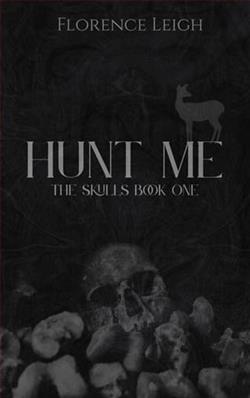Page 35 of Angel of Vengeance
The cauda equina—“horse’s tail” in Latin—was the bundle of nerves that diverged at the base of the spine into hundreds of gossamer-like strands. This miraculous biological structure was the very foundation of his Arcanum. Its extraction was only possible if postoperative recovery was not an issue. But the processing of the cauda equina into the Arcanum—the elixir of life extension for which he searched—required a chemical process of great complexity and precision, procedures and titrations that had so far eluded him. Perhaps that book the duchess had given him, seemingly written in his own future hand, had the answers. Perhaps not.
An additional problem was the resource itself. As he gazed down at the surgical table, he felt a twinge of dissatisfaction. This one was on the lean side, malnourished, pale. He would prefer to have had the time to fatten it up, but he was in a hurry. A tremendous hurry. It would have to do.
The resource—he’d already forgotten her name—was lying facedown on the oilcloth atop the surgical table. One of innumerable sad cases: abandoned, desperate—more proof (as if it were needed) of the worthlessness and suffering of the human species. She was covered with a crisp white sheet, hands and feet securely strapped, a thick wad of chloroform-doused cotton over her mouth and nose, held in place by gauze wound around her head. Leng knew that in Munck he had an assistant who took pleasure in preparing the resources—he himself found the inevitable struggling, screams, and pleas a tiresome prologue.
He gave a sharp nod, and Munck drew back the sheet, exposing the naked body.
A faint moan sounded. The chloroform was a minor sedative only, but it was all he could risk using. He had learned it was important to keep the resource conscious as long as possible, in order to harvest the nerves in an active state.
Now he approached the table, taking a last glance at the instrument tray to make sure all was in readiness. Munck stepped back, clutching the white sheet between his hands, eyes shining. Picking up a surgical scalpel, Leng expertly palpated the lower back with his fingers and thumb, locating each vertebra and mentally identifying them: T12, L1, L2. Then, with a single, decisive swipe, he severed the longissimus thoracis and other “true” muscles of the lower back. There was more noise now, but Leng did not notice: he was engrossed in his work and pleased with the start he’d made. Only a true surgeon would appreciate the skill it took to transect all four layers of deep back muscle with one stroke.
Using retractors, he exposed the laminae of the vertebrae, the curved sections of bone that made up the rear of the protective spinal ring. A medical chisel was sufficient to chip these away, along with the vertebral arches. After plucking away bits of interspinous ligaments with a forceps, he picked up a finer-bladed scalpel and opened the dura, clamped it away on both sides with retractors, and—scalpel in one hand, forceps in the other—probed the meninges of the spinal cord, looking for the precise place to cut.
… And there it was. He nodded to Munck, who presented a glass jar, partially filled with sterile water tinctured with a mild preservative. With the resource now motionless Leng made the final cuts, exposing his prize, freeing it from the peripheral nerves, and extracting it carefully with the forceps.
The anatomical perfection of the structure, its delicacy and intricacy, never ceased to impress him. How amazing were the works of God!
He submerged it with infinite care in the beaker, and Munck sealed the top and placed it in a small portable icebox kept for that purpose. Leng stepped back, then pulled off his mask and gloves while Munck turned his efforts to packing the open wound with gauze and covering the resource—now spent—with the sheet.
How amazing indeed, he thought again, were the works of God. But it seemed the Supreme Being cared too much for his creation—Leng could think of no other reason why such a destructive creature as man would be permitted to remain on earth. But that, in essence, was the foundation of his life’s work.
What a kind and merciful God did not have the heart to do, Leng would do for Him.
28
OTTO BLOOM UNROLLED THE soiled plat on the dining room table of the Park Avenue dwelling and pinned down the corners with lead weights. Three of his sandhogs looked on, dressed in work clothes and exceedingly ill at ease in the opulent surroundings. Bloom himself felt intimidated by the extreme wealth, as well as the way Alphonse Billington threw around huge sums of money for all kinds of crazy things.
“Well,” he said, glancing up at his new employer, who was examining the plat with glittering eyes, “this is quite some plan of yours. I have to warn you: there will be rats.”
“They are practically Manhattan’s mascot.”
“I’m talking about a lot of rats. When we unseal the reservoir of the old Collect Pond here, and its water floods the underground tunnels, the rats are going to flee in the only direction left to them—up.”
“How interesting,” said Billington.
Bloom shook his head. He wondered again what he’d gotten himself into, tangled up with this strange, pale man and his peculiar tasks. But the pay was high, and the work was preferable to the brutal and dangerous caissons of the Brooklyn Bridge, where dozens of his comrades had died. He was keenly aware that Billington had not told him all, or even most, of what he was doing, nor had he explained the spiritual gobbledygook that motivated his brother, whom Billington had mentioned but Bloom had yet to meet. Yet despite all the secrecy and unfathomable dealings, Bloom’s instincts told him that Billington was a person of goodwill and integrity—and had ways to ensure the work they did, lawful or not, would appear to be so.
“Are you confident, Mr. Billington, that there’s no one down in those old tunnels? Once the water comes, they won’t be able to escape. I don’t want to be responsible for… you know, drowning anyone.”
“Bloom, the truth is there is probably one person, perhaps two, down there. But you can trust me when I tell you they are guilty of heinous crimes against humanity. A side effect of this operation is, in fact, to rid the world of their presence.”
Bloom nodded. He did trust the man—although he didn’t know exactly why. His men seemed to, as well.
Billington rubbed his hands together. “Now, Bloom, please tell me the plan you’ve devised.”
Bloom smoothed down the plat with his calloused palms. “Just to warn you, sir: it was difficult to get this plat, and I’m not sure it’s entirely accurate. The Collect Pond was drained and filled in about sixty years ago, but much of the water remains trapped in these reservoir canals, kept filled by underground springs. To stop the water from spreading, these holding canals were sealed off from the rest of the old aqueduct complex, which is now free of water. That’s what we’re going to flood—these tunnels, here and here. There may be—in fact, there certainly are—other tunnels and abandoned spaces down there, not recorded on the plat, that may also be flooded.”
“I hope to flood them all. But is there any danger the water might rise above ground level?”
“No. The water won’t rise farther than its natural level, which is well below the street and most of the current basements in the area.”
“Where will you put your charges?”
“The way I’ve worked it out, my men will enter at these access points. Three charges will be set: here, here, and here, each timed to detonate more or less simultaneously. Once these connections have been blown, the water will issue from these transverse aqueducts, meet in the middle, then spread out to flood the rest of the old reservoir tunnels.”
“Excellent. And how long do you estimate this will take?”
“Not long at all. Ten minutes, perhaps.” He glanced at the three men, who were eyeing the plat with furrowed brows. “These are reliable men, and they’ve been thoroughly briefed.”















